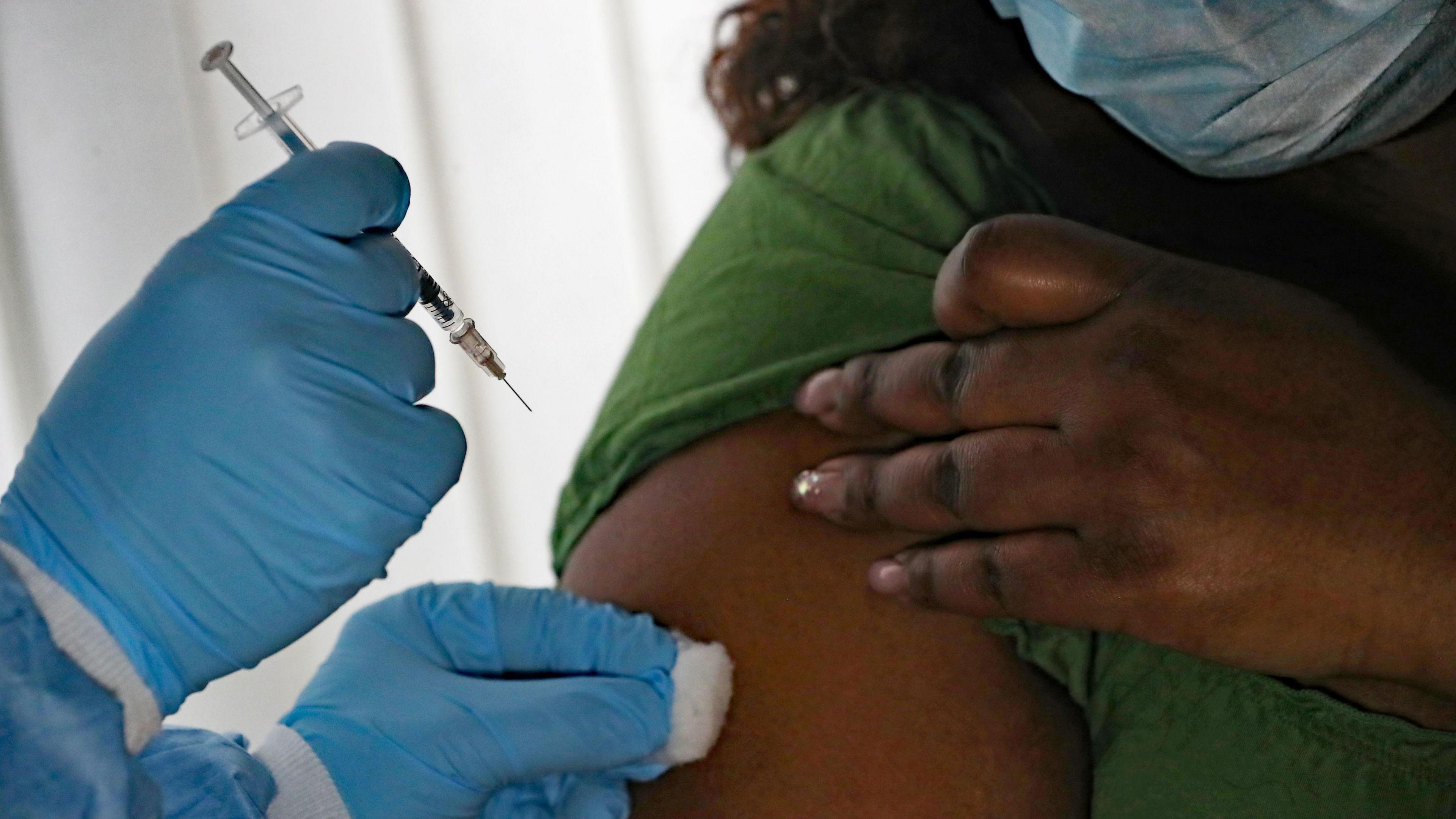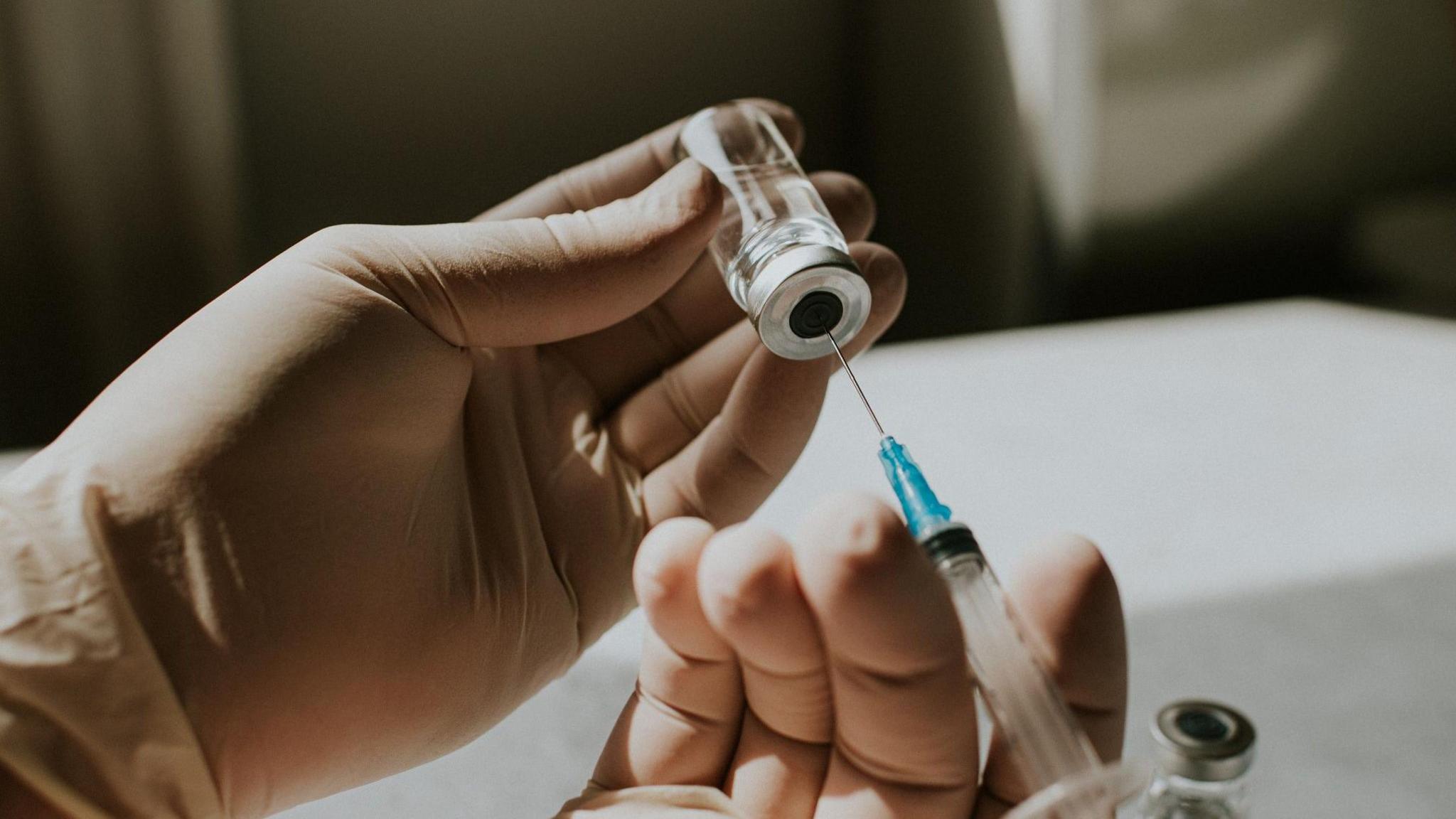First gonorrhoea vaccinations to start in August

England will also start vaccinating people against the STI from August
- Published
The Department of Health has said a targeted vaccination programme against gonorrhoea has been approved across Northern Ireland.
Eligible patients will be offered the vaccine from August 2025, the department said.
Those eligible include gay and bisexual men who have a recent history of multiple sexual partners or have recently had a sexually transmitted infection (STI).
Gonorrhoea is now the most prevalent STI diagnosed in sexual health clinics in Northern Ireland, according to the Public Health Agency (PHA), external.
England will also begin its vaccination roll out in August this year.
Its vaccine roll out will also focus mainly on gay and bisexual men with a history of multiple sexual partners or an STI.
Advice was given by the Joint Committee on Vaccination and Immunisation (JCVI) in November 2023, which recommended roll out of the vaccine following an upsurge in gonorrhoea cases.
Health Minister Mike Nesbitt said the launch of the vaccine programme is "important and very timely for Northern Ireland's public health".
He added that by targeting those "most at risk", there is an "opportunity to curb the spread and reduce transmission rates".
The vaccine is an existing one for meningococcal B disease, called 4CMenB.
The UK Health Security Agency (UKHSA) research shows that those who receive the jab could be protected from the STI by up to 40% and it could help tackle levels of antibiotic-resistant strains of the disease.
Record number of gonorrhoea cases
PHA figures for Northern Ireland show that between 2021 and 2022 the number of cases jumped from 652 to 1,606 - the highest number recorded by the PHA.
There were 951 cases in 2019, but that dropped to 455 in 2020, likely due to changes in behaviour and healthcare associated with the Covid pandemic.
In 2023, there were 1,561 new cases, accounting for almost a third (28%) of all new STI diagnoses in Northern Ireland.
Of those diagnosed, 75% were males and of those 67% were gay, bisexual and men who have sex with men.
Gonorrhoea does not always have symptoms, but they can include pain, unusual discharge, inflammation of the genitals and infertility.
The chief medical officer said the vaccine roll-out will have "significant public health benefits for both those who receive the vaccine, and the wider population".
Sir Michael McBride said the programme has "the potential to result in less patients presenting with more complex cases and clusters of gonorrhoea".
He encouraged all those eligible to take up the vaccine when offered.
What is gonorrhoea?
Gonorrhoea is easily passed from person to person through unprotected sex.
About one in 10 infected men and almost half of infected women do not experience any symptoms.
The infection can be passed from a pregnant woman to her baby, and without treatment, can cause permanent blindness for a newborn baby.
It is not spread by non-sexual contact like hugging.
It is not transmitted through surfaces and materials like toilet seats, towels, cups or plates.
If you have had successful treatment for gonorrhoea before, you can still catch it again.
Source: NHS., external
- Published26 May

